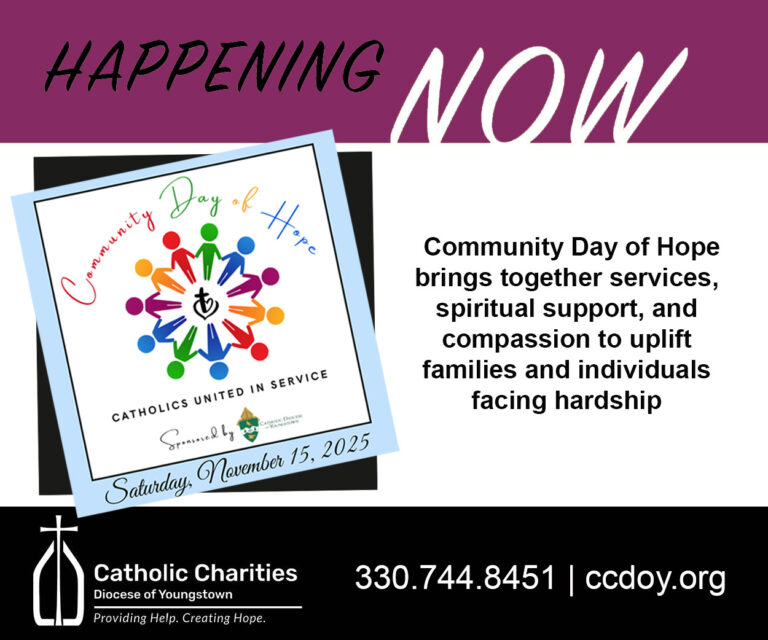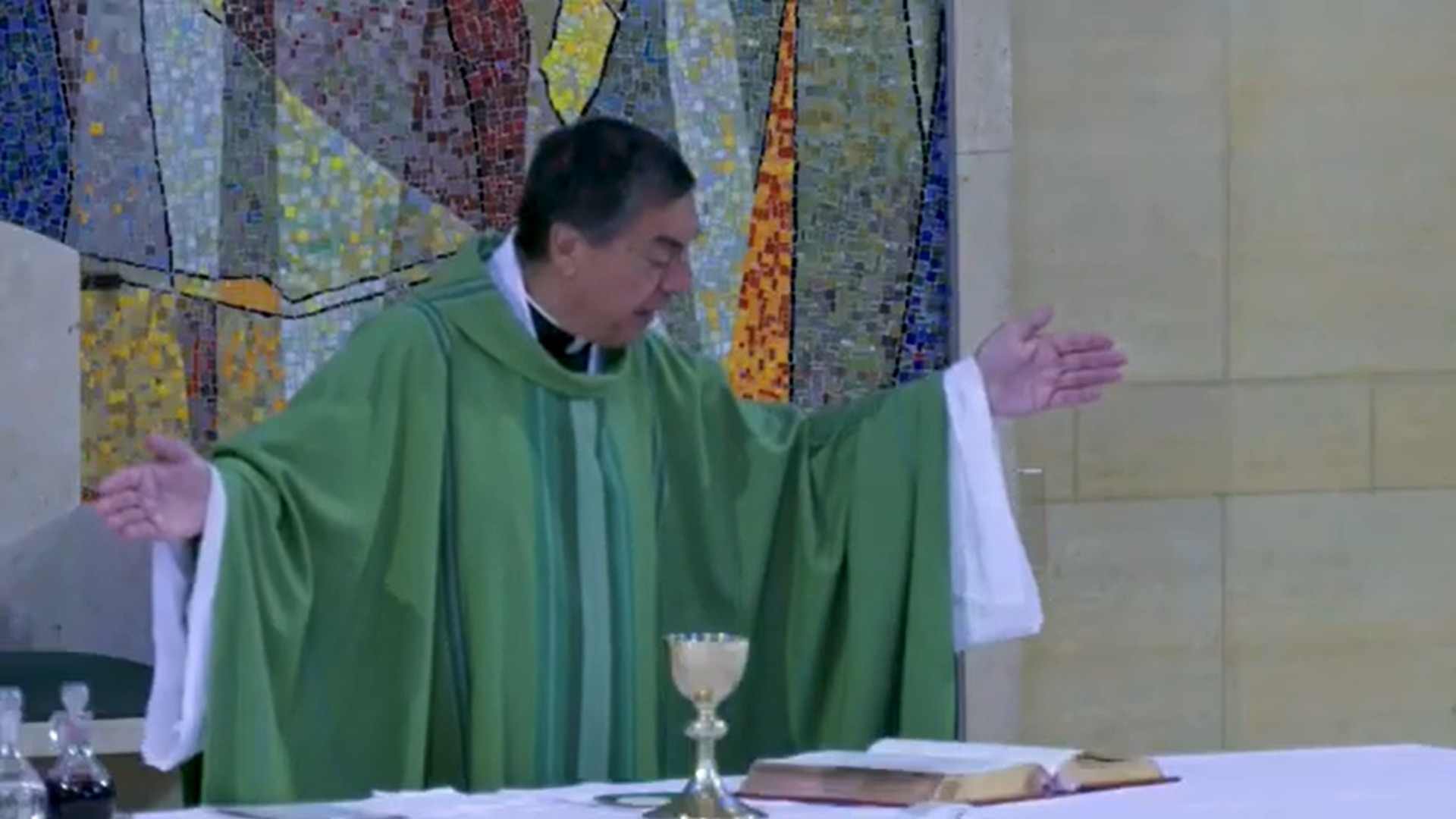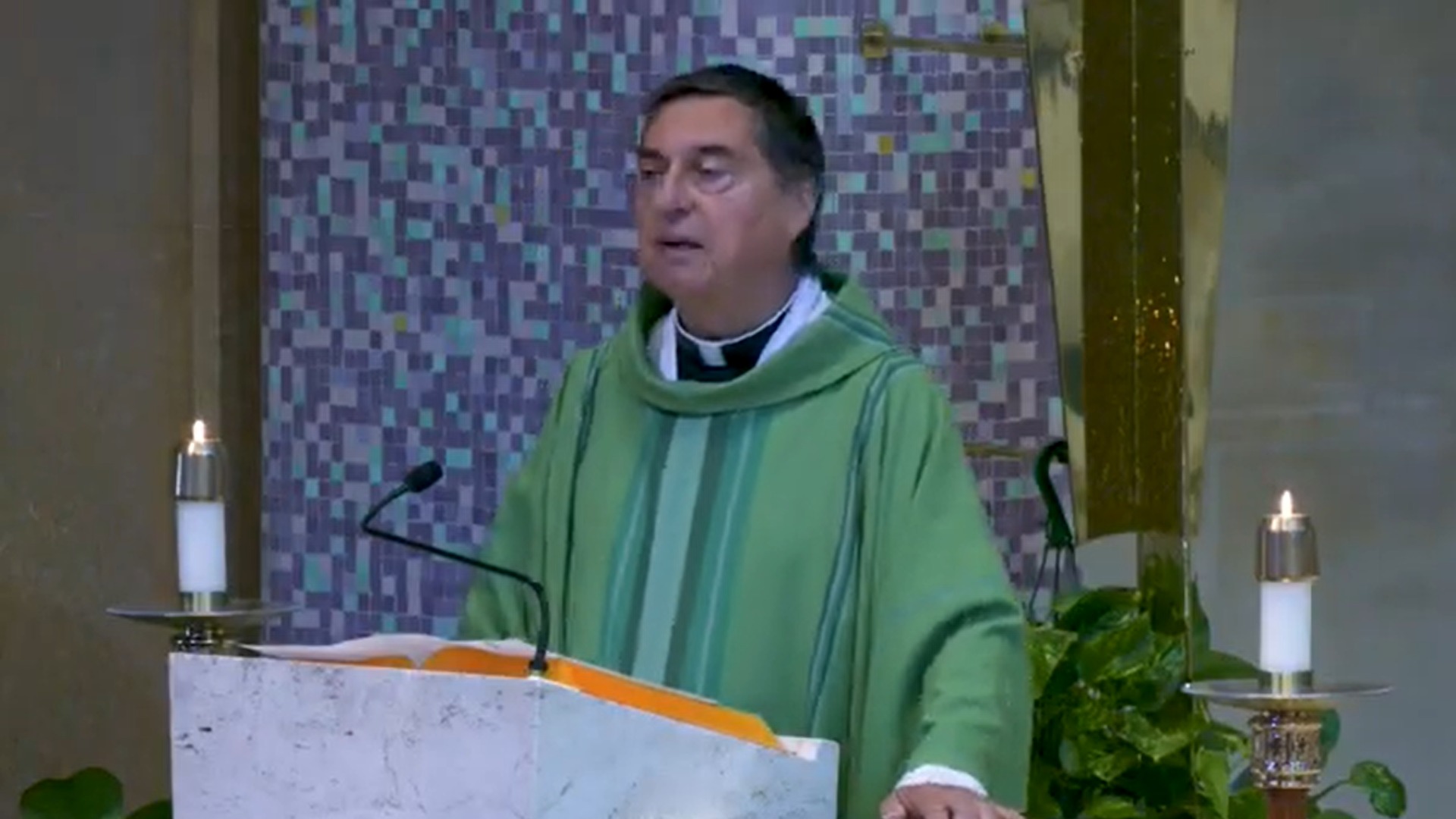Please scroll down for the Spanish translation of Bishop Bonnar’s column.
When I was a parish priest, I enjoyed preparing couples for the Sacrament of Marriage. Through the years I served on the team of Engaged Encounter—a Catholic marriage preparation program that assists couples in building a sacramental marriage—and was also involved in various parish teams who were responsible for this important ministry.
In one of the parishes in which I served, couples would give talks on various aspects of married life. There was one talk that really got me thinking and laughing. This talk addressed the value of adjustments in married life. The couple openly shared humbling stories of the adjustments they made for each other through the years.
Adjustments are integral, not only to a successful marriage, but also to life in general. Life can come at us quickly, but we can always adjust. It reminds me of what singer Jimmy Dean once said: “I can’t change the direction of the wind, but I can adjust my sails to always reach my destination.”
What does it mean to adjust? The dictionary defines it as “a small alteration or movement made to achieve a desired fit, appearance or result.” Adjustment is also defined as “the process of adapting or becoming used to a new situation.” What I found noteworthy here is the fact that adjustments inevitably involve a modification of some kind and that this is often a process that can be painstaking.
One of the temptations of being human is that we can become rigid to the point that we resist any kind of adjustment. Conversely, when we commit to a life of adjustments, sometimes we can become impatient because the adjustments do not happen smoothly or quickly. We all need to aspire to be people of adjustment as well as patience.
Jesus called us to a life of perpetual adjustment, otherwise known as conversion. When He announced the Kingdom, he said, “The time is fulfilled, and the kingdom of God is at hand; repent and believe in the gospel” (Mark 1:15). The work of conversion is always a matter of the heart.
Article #1430 of the Catechism of the Catholic Church states, “Jesus’ call to conversion and penance, like that of the prophets before him, does not aim first at outward works, ‘sackcloth and ashes,’ fasting and mortification, but at the conversion of the heart, interior conversion. Without this, such penances remain sterile and false; however, interior conversion urges expression in visible signs, gestures and works of penance.”
The whole experience of embracing conversion daily is captured best for me in Psalm 119:36, “Incline my heart to your decrees and not to gain.” The Liturgy of the Hours’ version of this psalm offers a more descriptive translation, “Bend my heart according to your will, O God.”
This image of bending suggests movement and flexibility. And bending often demands that one lower themselves nearer to the ground. Such an action speaks of humility. The word “humility” itself means “of the earth.” Without humility, the work of conversion is empty.
There is a prayer that the priest prays inaudibly before he washes his hands on behalf of the whole assembly at every Mass. He says, “With humble spirit and contrite heart may we be accepted by you, O Lord, and may our sacrifice in your sight this day be pleasing to you, Lord God.” These words point to the humility and flexibility of heart that we need to bring to God and one another every day.
Although we are far removed from the Lenten season, a dedicated time of conversion, we must never stop embracing conversion in our lives with humility and contrition. None of us is complete or without the need for adjustment.
Change is hard, as they say. But what is just as difficult is admitting our need to change according to God’s plan. What is equally challenging is committing to the act of spiritual adjustment known as conversion. We remain “works in progress,” always in need of change and adjustment as we seek the destination of heaven. In the meantime, let us pray for the grace of humility and echo the prayer of the psalmist, “Bend my heart according to your will, O God” knowing that true and lasting change takes time.
Cuando era párroco, me gustaba preparar a las parejas para el Sagrado Sacramento del Matrimonio. Con los años serví en el equipo del Encuentro de Comprometidos, un programa católico de preparación para el matrimonio que ayuda a las parejas a construir un matrimonio sacramental, y también estaba involucrado en varios grupos de la parroquia que eran responsables de este importante ministerio.
En una de las parroquias en las que serví, las parejas daban charlas sobre varios aspectos de la vida de casado. Hubo una charla que realmente me hizo pensar y reír. Esta charla se trató sobre el valor de adaptarse en la vida de casado. La pareja compartió abiertamente historias de humildad sobre los ajustes que habían hecho el uno por el otro a través de los años.
Los ajustes son necesarios, no solo para un matrimonio exitoso, sino también para la vida en general. La vida puede venírsenos rápidamente, pero siempre podemos adaptarnos. Me recuerda de lo que el cantante Jimmy Dean una vez dijo: “No puedo cambiar la dirección del viento, pero puedo ajustar mis velas para llegar siempre a mi destino.”
¿Qué significa ajustar? El diccionario lo define como una pequeña alteración o movimiento hecho para alcanzar el encaje, apariencia o resultado deseado. También se define ajuste como el proceso de adaptarse o acostumbrarse a una nueva situación. Lo que encontré digno de mencionar aquí es el hecho de que los ajustes inevitablemente involucran modificación de algún tipo y que esto es a menudo un proceso que puede ser laborioso.
Una de las tentaciones del ser humano es que podemos endurecernos al punto de resistirnos a cualquier tipo de cambio. Por el contrario, cuando nos comprometemos a una vida de ajustes, a veces podemos volvernos impacientes porque los ajustes no suceden sin problemas ni rápidamente. Todos necesitamos aspirar a ser personas que nos adaptamos así como a ser pacientes.
Jesús nos llamó a una vida de ajuste perpetuo, también conocida como conversión. Cuando Él anunció el Reino, dijo, “El tiempo se ha cumplido, el Reino de Dios está cerca. Renuncien a su mal camino y crean en la Buena Nueva.” (Marcos 1,15) La obra de conversión es siempre un asunto del corazón.
El artículo #1430 del Catecismo de la Iglesia Católica dice, “la llamada de Jesús a la conversión y a la penitencia no mira, en primer lugar, a las obras exteriores ‘el saco y la ceniza’, los ayunos y las mortificaciones, sino a la conversión del corazón, la penitencia interior. Sin ella, las obras de penitencia permanecen estériles y engañosas; por el contrario, la conversión interior impulsa a la expresión de esta actitud por medio de signos visibles, gestos y obras de penitencia.”
Toda la experiencia de abrazar diariamente la conversión se capta mejor para mí en el Salmo 119,36, “Inclina mi corazón hacia tus testimonios y no hacia la ganancia.” La versión de La Liturgia de las Horas de este Salmo ofrece una traducción más descriptiva, “Inclina mi corazón a tus testimonios, Oh Dios.”
Esta imagen de doblarse sugiere movimiento y flexibilidad. Y doblarse a menudo requiere que uno se agache cerca del suelo. Esta acción habla de humildad. La palabra “humildad” en sí misma significa “de la tierra”. La obra de conversión sin humildad es vacía.
Hay una oración que el sacerdote reza en silencio antes de lavarse las manos en nombre de toda la asamblea en cada Misa. Él dice, “Acepta, Señor, nuestro corazón contrito y nuestro espíritu humilde; que éste sea hoy nuestro sacrificio y que sea agradable en tu presencia, Señor, Dios nuestro”. Estas palabras apuntan a la humildad y flexibilidad de corazón que necesitamos para acercarnos a Dios y a los demás todos los días.
A pesar de que estamos lejos de la temporada de Cuaresma, un tiempo dedicado a la conversión, nunca debemos dejar de abrazar la conversión en nuestras vidas con humildad y contrición. Ninguno de nosotros está completo o sin necesidad de adaptarse.
El cambio es difícil, como dicen. Pero lo que es igual de difícil es admitir nuestra necesidad de cambiar de acuerdo al plan de Dios. Lo que es igualmente desafiante es comprometerse con el acto de ajuste espiritual conocido como conversión. Seguimos siendo “obras en progreso”, necesitando siempre cambio y ajuste mientras buscamos llegar al Cielo. Mientras tanto oremos por la gracia de la humildad y hagámosno eco de la oración del salmista “Inclina mi corazón hacia tus testimonios” sabiendo que el cambio verdadero y duradero toma tiempo.












